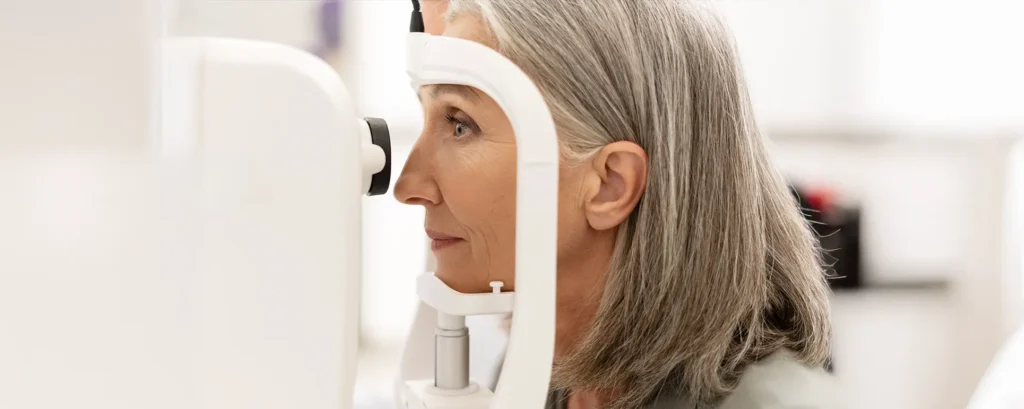When we think of cataract surgery, most of us focus on one thing—better vision. And rightly so. After all, replacing a cloudy lens with a clear artificial one has transformed millions of lives around the world. But what if the benefits go further than seeing clearly? What if sharpening your sight could also sharpen your mind?
That’s exactly what a growing body of research is beginning to suggest. In this article, we’re going to unpack the connection between cataracts, cognitive decline, and how restoring vision through surgery could potentially improve brain function in older adults. We’ll examine the studies, consider the theories behind the link, and help you understand what this means for you or your loved ones.
The Cataract-Cognition Connection: Why It Matters
You might be wondering: what does an eye condition have to do with brain health? It turns out, quite a lot. Cataracts, by clouding your vision, don’t just make it harder to see—they limit your ability to interact with the world. That includes reading, recognising faces, navigating your environment, and even enjoying hobbies.
When those visual inputs are reduced, your brain gets less stimulation. Over time, this sensory deprivation can contribute to cognitive decline, particularly in older adults. Think of it like a muscle that isn’t being used—it can start to weaken. The same principle may apply to certain brain functions when your visual system is impaired.
Research is increasingly showing that vision loss is more than an inconvenience—it’s a risk factor for conditions like dementia and depression. That’s why understanding the potential cognitive benefits of cataract surgery isn’t just interesting—it’s vital.
Understanding Cognitive Decline in Ageing Adults
Cognitive decline comes in many forms. For some, it’s minor forgetfulness or slower processing speeds. For others, it can progress to more serious conditions like mild cognitive impairment (MCI) or dementia, including Alzheimer’s disease. While ageing naturally leads to some decline, not everyone is affected equally—and not every cause is irreversible.
One of the challenges in addressing cognitive decline is that it’s multifactorial. Genetics, lifestyle, education, cardiovascular health, and sensory impairments all play a role. Among these, sensory loss—particularly hearing and vision—has been consistently associated with faster rates of cognitive deterioration.
So, where does cataract surgery fit into this picture? It’s a reversible intervention. Unlike some cognitive risk factors that are hard to modify, restoring vision through surgery is a straightforward procedure with well-documented safety and success rates. That makes it a fascinating area of research for those looking at ways to protect or even enhance cognitive function later in life.
The Science Behind It: Key Studies Linking Cataract Surgery and Brain Health

A number of studies in recent years have begun to shed light on this promising connection. One of the most influential is the English Longitudinal Study of Ageing (ELSA), which followed thousands of participants over time. The researchers found that older adults who underwent cataract surgery had a significantly lower rate of cognitive decline compared to those who did not have the surgery.
Another large study published in JAMA Internal Medicine in 2018 reviewed over 3,000 participants in the US-based Adult Changes in Thought (ACT) study. It revealed that those who had cataract surgery were 29% less likely to develop dementia than those who hadn’t had the operation. That’s not a small difference—and the study adjusted for a variety of factors like age, education, and baseline health.
More recently, neuroimaging studies have begun to explore not just behaviour but brain structure. Some evidence suggests that improving sensory input may actually influence brain plasticity—helping preserve or strengthen connections between neurons in key areas involved in memory and cognition.
Theories on Why Vision Restoration Helps Cognition
Several hypotheses have been proposed to explain the observed cognitive improvements after cataract surgery. Let’s explore a few of the most compelling:
- Sensory Deprivation Hypothesis
The sensory deprivation theory posits that when your senses decline, your brain doesn’t get enough stimulation to stay sharp. Vision, being one of the dominant senses, plays a major role in engaging the brain. When cataracts limit your visual input, your brain may respond by gradually scaling back its activity in related areas. Restoring that input, through surgery, can effectively “wake up” those underused regions. - Cognitive Load Theory
Another explanation revolves around mental effort. When you have poor vision, your brain has to work harder to interpret what you see. That’s called increased cognitive load. Constantly straining to recognise faces, read signs, or move safely around your home can take up a disproportionate share of mental resources—leaving less available for memory, reasoning, and problem-solving. Cataract surgery reduces this burden, potentially freeing up your cognitive bandwidth. - Improved Mood and Social Engagement
Don’t underestimate the mental toll of visual impairment. It can lead to isolation, reduced mobility, and even depression—all of which are known to accelerate cognitive decline. People who regain their vision often experience a boost in confidence, motivation, and social interaction. And those emotional and social factors play a crucial role in maintaining cognitive resilience.
What the Data Doesn’t Say (Yet)
While the data is promising, it’s important to approach this area with a balanced perspective. Not every study has found a strong link, and not all improvements are dramatic or long-lasting. Most studies focus on older adults, and it’s unclear whether these findings apply equally to younger individuals with cataracts.
Moreover, while observational studies can show associations, they can’t definitively prove causation. It’s possible that people who opt for cataract surgery are generally more health-conscious, more socially engaged, or have better access to care—all of which could independently reduce cognitive decline.
That’s why researchers are calling for more randomised controlled trials (RCTs) to really pin down the causal mechanisms. Still, with so many other proven benefits to cataract surgery, the potential for cognitive perks is an exciting bonus worth exploring.
Who Stands to Benefit the Most?
While everyone with visually significant cataracts can benefit from surgery, some groups may stand to gain more in terms of cognitive function:
- Older adults at risk of dementia: If you’re noticing mild memory issues and also have cataracts, the surgery could help support brain health.
- Those experiencing social withdrawal or low mood: Vision restoration can help rekindle hobbies, social activities, and confidence—factors known to protect against cognitive decline.
- People with multiple sensory impairments: If you already have hearing loss or mobility issues, keeping your vision intact can reduce the overall sensory burden on your brain.
If you’re caring for an elderly relative, it’s worth asking whether untreated cataracts could be contributing to their cognitive difficulties. Many people delay surgery, thinking it’s “not that bad”—but the cumulative effects of poor vision on mental wellbeing are often underestimated.
How Soon Can Improvements Be Noticed?
One of the most interesting aspects of this discussion is how quickly improvements can be observed. Some studies report better scores on cognitive tests as early as six months after surgery. Patients often describe feeling “more alert” or “less foggy,” even before undergoing any formal cognitive assessment.
But the benefits seem to grow over time. The ELSA study showed that the protective effects on cognition extended over years. This suggests that early intervention—before vision loss leads to prolonged sensory deprivation—might offer the most durable brain-health advantages.
It’s also worth noting that bilateral cataract surgery (operating on both eyes) tends to show better results than just doing one. That might seem obvious, but it reinforces the idea that optimal visual input is crucial for cognitive function.
What About Patients Already Diagnosed with Dementia?
Cataract surgery can still be helpful even if someone already has a diagnosis of cognitive impairment. In fact, for patients with dementia, better vision can make communication and care easier. It can reduce confusion, falls, and anxiety—all common challenges in dementia care.
That said, the potential for cognitive improvement may be more limited if brain changes are already advanced. Still, the quality-of-life benefits of clearer vision—being able to recognise loved ones, read independently, or navigate a familiar room—should not be overlooked.
Surgeons and carers must also consider other risks, such as tolerance to anaesthesia or challenges with post-operative instructions. But overall, many people with early-stage dementia still experience significant benefits after cataract surgery.
The Role of Routine Eye Checks in Cognitive Health

So, what can you do with this information? One simple but powerful step is to prioritise routine eye checks. Cataracts often develop slowly, and you might not realise just how much your vision has deteriorated until it’s significantly affecting your day-to-day life.
For older adults—especially those with any memory concerns—annual eye exams can be just as important as routine blood tests or heart screenings. They’re an opportunity to catch cataracts early and make a plan before the vision loss becomes more impactful.
If you’re already considering private cataract surgery in London, it may be reassuring to know that the benefits could extend beyond your eyesight. And if you’re still on the fence, consider that preserving your cognitive independence is just as important as reading your favourite book without squinting.
Frequently Asked Questions
- Can cataract surgery really help improve memory or thinking skills?
It’s not a magic fix for memory loss, but yes—there’s growing evidence that cataract surgery may help improve cognitive function, particularly in older adults. Studies suggest that better vision reduces the mental strain of everyday tasks, helps re-engage the brain through increased stimulation, and can even lift mood—all of which support cognitive health. While it won’t cure dementia, the surgery may slow cognitive decline or make daily life feel mentally clearer. - How soon after surgery might cognitive improvements be noticed?
Some people report feeling more alert or mentally “brighter” within a few weeks of surgery, particularly once both eyes have been treated. Clinical studies have observed measurable improvements in cognition as early as six months post-op. That said, every individual is different—some may notice subtle benefits, while others see more dramatic changes over time. - Is cataract surgery recommended for people who already have dementia?
It can be, yes. While the cognitive gains might be more limited in people with advanced dementia, there are still strong arguments for surgery. Clearer vision can reduce agitation, confusion, and fall risk—making life easier for both the patient and their carers. Each case needs to be carefully assessed, though, especially in terms of surgical risks and post-operative care. - Why does vision have such a big impact on brain health?
Vision is a primary way we engage with the world. When it deteriorates, it reduces sensory input to the brain, which in turn can affect memory, attention, and mood. Think of it like trying to drive through fog—you have to work harder to make sense of your surroundings. That extra effort drains your mental energy. Restoring sight lifts that burden, giving your brain more freedom to focus on other tasks. - Does everyone get cognitive benefits from cataract surgery, or only older adults?
Most of the research on this topic has focused on people aged 65 and above, where the risk of cognitive decline is naturally higher. That’s where the clearest benefits have been observed. While younger patients may experience boosts in mood or concentration post-surgery, the impact on long-term cognition isn’t as well documented in that age group. - Can delaying cataract surgery increase the risk of cognitive problems?
It’s possible. Delaying surgery means living longer with poor vision, which can lead to less mental stimulation, reduced social interaction, and even depression—all of which are linked to faster cognitive decline. While cataract progression isn’t always urgent, putting off surgery for too long may carry hidden risks beyond just worsening eyesight. - Are the cognitive benefits permanent after cataract surgery?
The current evidence suggests that cognitive benefits can be long-lasting, especially if surgery is done before significant decline has set in. However, they may not be “permanent” in the strictest sense—ageing and other health factors will still influence cognitive health over time. What surgery offers is a chance to maintain a higher level of function for longer. - Do I need to have both eyes operated on to see cognitive improvement?
Having both eyes treated often provides a more complete restoration of vision, which may lead to greater cognitive benefits. Some studies suggest that bilateral surgery (on both eyes) results in more pronounced improvements in mental function compared to unilateral surgery (one eye only). That said, even correcting one eye can make a noticeable difference. - Are there any risks to consider when weighing cognitive benefits?
Cataract surgery is one of the safest procedures in modern medicine, but like all surgery, it carries some risk—such as infection, inflammation, or lens complications. If someone already has cognitive impairment, managing post-op care might require extra support. The key is to weigh the relatively small risks against the potentially wide-ranging benefits to both vision and quality of life. - Should I speak to a specialist about this before making a decision?
Absolutely. If you or someone you care for is experiencing both vision problems and early signs of cognitive decline, it’s worth speaking to a cataract surgeon. They can assess the severity of the cataract, explain the procedure in more detail, and help you understand whether it’s the right time for surgery. The sooner you have the conversation, the more options you’ll have.
Final Thoughts
We tend to think of cataract surgery as a vision fix—and it certainly is. But mounting evidence suggests it may also be a brain booster, particularly for older adults. From reducing sensory deprivation and cognitive load to improving mood and social engagement, the indirect effects of clearer vision ripple through nearly every area of life.
While more research is needed to confirm exactly how and when these cognitive benefits occur, what’s already clear is this: better vision means a better chance to stay mentally sharp, socially connected, and independent for longer.
So whether you’re considering surgery for yourself or supporting a loved one through the decision, know this—it’s not just about what you see. It’s about how you live, think, and connect with the world around you. And for many, that starts with seeing clearly again. If you’re considering private cataract surgery in London, it’s worth knowing that the benefits may go well beyond your eyes.
References
- Maharani, A., Dawes, P., Nazroo, J., Tampubolon, G. and Pendleton, N., 2018. Cataract surgery and age-related cognitive decline: a 13-year follow-up of the English Longitudinal Study of Ageing. PLoS ONE, [online] 13(10), p.e0204833. Available at: https://journals.plos.org/plosone/article?id=10.1371/journal.pone.0204833 [Accessed 30 May 2025].
- Lee, C.S., Tamang, S., Pershing, S., Black, B.S. and Lee, A.Y., 2018. Association of cataract surgery with risk of dementia: a meta-analytical approach. JAMA Internal Medicine, 178(9), pp.1134–1140.
- Whitson, H.E., Cronin-Golomb, A., Cruickshanks, K.J., Gilmore, G.C., Owsley, C., Peelle, J.E. and Yeh, T.C., 2018. American Geriatrics Society and National Institute on Aging Bench-to-Bedside Conference: Sensory impairment and cognitive decline in older adults. Journal of the American Geriatrics Society, 66(11), pp.2052–2058. Available at: https://agsjournals.onlinelibrary.wiley.com/doi/full/10.1111/jgs.15506 [Accessed 30 May 2025].
- Clare, L., Wu, Y.T., Teale, J.C., MacLeod, C., Matthews, F.E., Brayne, C. and Woods, R.T., 2017. Potential impact of cataract surgery on cognitive decline: Findings from a population-based study of older people in the UK. British Journal of Ophthalmology, 101(4), pp.543–547.
- Swenor, B.K., Wang, J., Varadaraj, V., Whitson, H.E. and Ramulu, P.Y., 2021. Vision impairment and cognitive outcomes: findings from the National Health and Aging Trends Study. JAMA Ophthalmology, [online] 139(2), pp.207–213.

